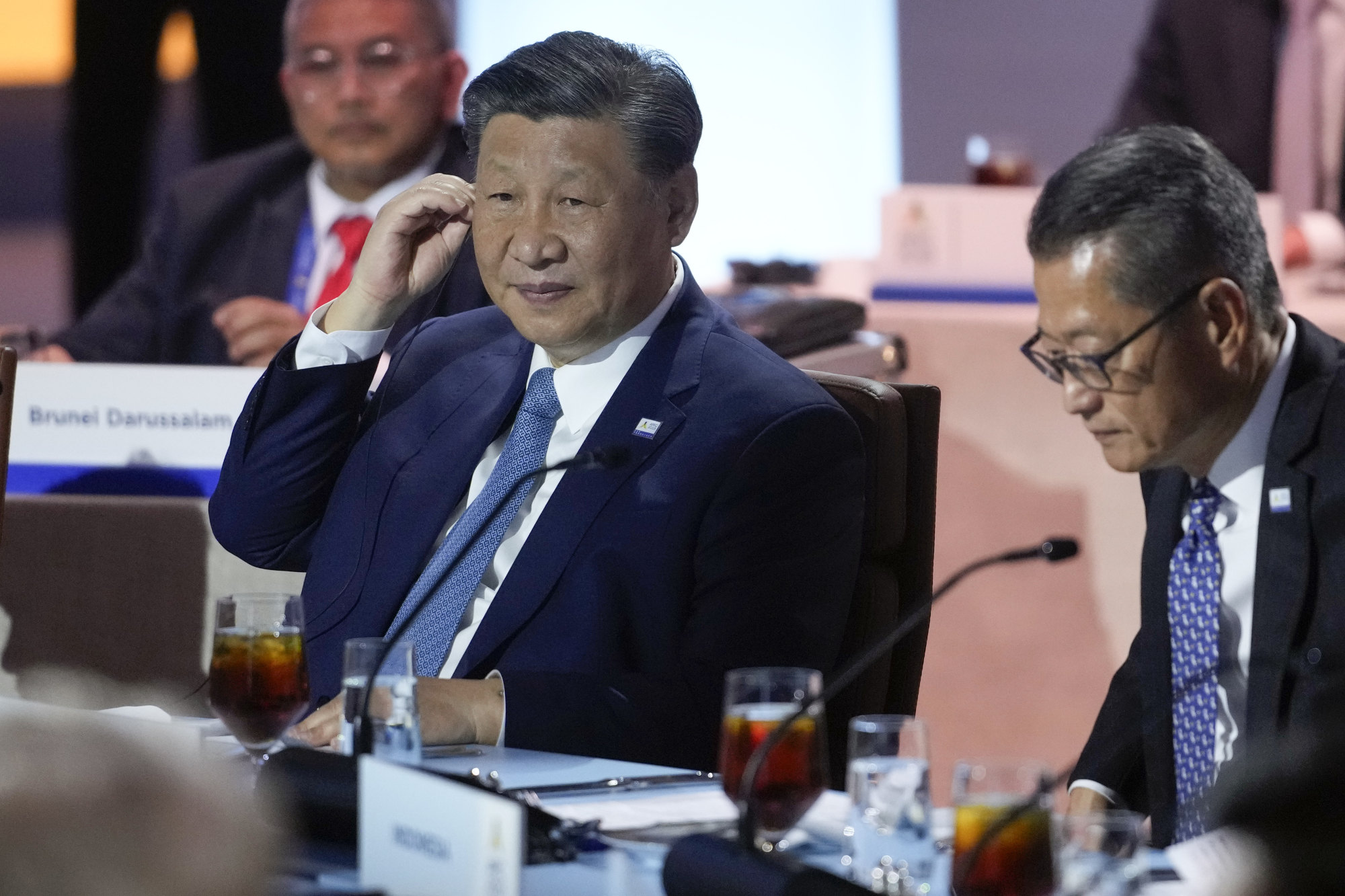“I had that brief discussion yesterday with President Xi,” Biden said at the Apec CEO Summit, attended by more than 1,000 business leaders. “He asked why we … are so engaged in the Pacific. It’s because we’re a Pacific nation. And because of us, there’s been peace and security in the region, allowing you to grow. He didn’t disagree.”
Biden characterised the meeting, which followed months of mounting bilateral tension, as productive.
“Our discussions have always been candid and constructive,” he said. “This is not all kumbaya. But it’s straightforward.”
Beijing and Washington have increasingly jockeyed for economic, military and diplomatic position in the Indo-Pacific region, with America’s hosting of the 21 Apec member economies an opportunity to showcase its leadership.
Biden touted the latest US quarterly economic growth rate of 4.9 per cent as well as low unemployment, falling inflation and the global reach of US multinationals.
It came as Xi “expressed his regret to our delegates and guests that he is unable to attend this year’s Apec CEO” in a message spread by organisers, calling in prepared comments for “seeking common ground while shelving differences”.
Xi and Biden clear ‘low bar for success’ but bigger hurdles loom
Xi and Biden clear ‘low bar for success’ but bigger hurdles loom
“It’s never been a good bet to bet against the American people,” said Biden.
“The United States remains vital to the future of the region, and the region is more vital than ever to the United States of America,” he added. “We aren’t going anywhere.”

“A stable relationship between the world’s two largest economies is not just good for the two economies but for the world. A stable relationship is good for everyone.”
Both presidents called for open economies and trade flows at a crossroads in history. But they set out starkly different visions.
Biden spoke of a future protecting intellectual property, US values, worker rights and bottom-up economic growth.
And Xi in prepared remarks called for the region to rise “above the outdated mentality of bloc confrontation and zero-sum game”.
He also urged against “provoking antagonism and confrontation, pursuing a beggar-thy-neighbour policy, or erecting high fences around a small yard”.
Xi Jinping offers cooperation, reassurance during US business dinner
Xi Jinping offers cooperation, reassurance during US business dinner
These are phrases China has long used to criticise what it regards as American Cold-War thinking.
Without mentioning the US by name, Xi also hit at a key weakness of Washington’s regional economic strategy.
Even as it heralds the benefits of resiliency, cohesion and partnership, the US has failed to deliver on what Asia-Pacific allies are most interested in: reduced tariffs, increased market access and stronger free trade ties with the American market.
“We should remain committed to open regionalism, and steadfastly advance the building of a free-trade area of the Asia-Pacific,” Xi said in his prepared remarks.
Unofficial exchanges soared ahead of Xi-Biden meeting to smooth path for talks
Unofficial exchanges soared ahead of Xi-Biden meeting to smooth path for talks
The Chinese leader said there was a need to “make our economies more interconnected, strengthen synergy between relevant regional trade agreements and development strategies and build an open Asia-Pacific economy”.
In a knock on China, Biden emphasised what he said were the values underwriting American growth, including its high standards, bottom-up innovation, equality and environmental standards.
Alfonso Bustamante, CEO of CFI Holdings, a Peruvian energy and agriculture company, said it was good the two countries were trying to get along and called the most recent US economic results impressive.
US business group calls for progress on IPEF ‘trade pillar’ as talks hit snag
US business group calls for progress on IPEF ‘trade pillar’ as talks hit snag
But he described America’s investment and infrastructure presence as underwhelming.
“Peru is getting a lot of interest from China, and we’re missing America,” Bustamante said. “America should pay a lot more attention to the region.”
Mark Cohen of the University of California, Berkeley said he appreciated the US leader’s mentioning intellectual property protection, but believed the Biden administration had fallen short on safeguarding American ideas and innovation.
“I’m wary of talks for talks’ sake,” he added.

